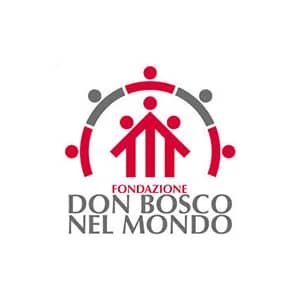Educational Project
- Introduction:
- The Three Pillars of Salesian Education :
- Reason
- Religion
- Affection
- The Salesian Perspective on Youth:
- A Look of Confidence
- A Look of Hope
- A Look of Affection
- Practicing Integral Education
- The Salesian Educational Community
- The Salesian House
To define his educational approach, Don Bosco speaks of the “preventive system” as opposed to the “repressive system.” This aligns with a broader 19th-century movement emphasizing prevention, applying it to education.
Prevention can mean dissuading someone, through more or less strong means, from committing an offense. Prevention also entails persuasion, dialogue, and respectful guidance of a person’s freedom. Don Bosco favors the latter approach.
To continue referring to Don Bosco today means choosing to view young people as he did and practicing, collaboratively with all partners of the educational community, an integral Salesian education.
In line with his vision of humanity, Don Bosco bases his educational approach on “reason, religion, and affection.” For him, education is a holistic system, encompassing affection, reason, faith, the search for meaning, and the relationship with the body. Salesian education must maintain a comprehensive view of its mission.
Don Bosco appeals to reason and intelligence in both youth and educators. This involves acting with reason, practicing healthy realism, developing good judgment, respecting others, engaging in dialogue, negotiating, taking thoughtful risks, entrusting young people with real responsibilities, and doing so with humor.
The Christian vision of humanity is at the core of Don Bosco’s educational work. He introduces faith to young people by giving reason a significant place, developing solid religious instruction, and proposing a responsible Christian ethic. This faith is not limited to theoretical understanding but is explicitly announced and celebrated, particularly through the sacraments of the Eucharist and Reconciliation. It guides young people to live according to the Gospel in their daily lives.
“Without affection, there is no trust; without trust, there is no education,” says Don Bosco. Educators demonstrate appropriate affection toward young people and encourage reciprocal friendship, guided by reason and religion. Don Bosco understood that young people who lack affection often feel devalued.
Don Bosco calls us to live among young people, pay attention to their lives, respect them, make time for them, and understand their ways of being, their expectations, aspirations, tastes, and daily experiences. Education, for Don Bosco, is a mission that enables young people to grow authentically within the family, at school, and in all areas of life.
To educate like Don Bosco is to “believe” in the young person entrusted to us: “I believe in you, I trust in your potential, I rely on you…” This confidence builds assurance in young people, helping them face life and the future with trust. The Salesian educator highlights young people’s successes and motivates them to overcome failures, uncovering their potential and fostering their ability to contribute to societal progress.
Educating like Don Bosco rejects the pessimism often expressed about the future. It is about hoping with young people, respecting others, and trusting in God’s providence. As Don Bosco often said, “The Salesian never laments the times they live in.”
Educating like Don Bosco means loving young people—welcoming them as they are while encouraging their growth to serve others and God. Affection, centered on respect, fosters confidence and autonomy without imposing the educator’s desires or goals on the young.
Don Bosco’s goal is to form “honest citizens and good Christians.” For him, sanctity and human success are inseparable. Salesian education embraces a unitary vision that combines pastoral care and education. A Salesian institution should be “a welcoming home, an evangelizing parish, a school preparing for life, and a playground where friends meet joyfully” (Salesian Rule of Life, n° 40).
Working in a Salesian institution means being part of a community where everyone has a place and shares responsibility for education.
Young people are central to this community, seen as active participants in their own education.
Families are integral members of the educational community, maintaining a trusting and structured dialogue with the institution.
Every staff member contributes to the educational mission based on their specific roles, fostering collaboration and mutual respect.
The overall quality of relationships within the Salesian house creates its unique atmosphere. Relationships marked by simplicity, joy, and trust among young people and educators define this “spirit of family,” particularly valuable in helping youth overcome challenges.
For Christians in a Salesian setting, this familial spirit has an ecclesial dimension, nurturing a sense of shared responsibility and communion. The Salesian house becomes a space where young people develop holistically and encounter Christ, contributing to the Church’s mission and the broader community.
Our sponsors















